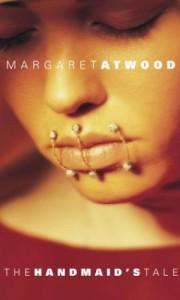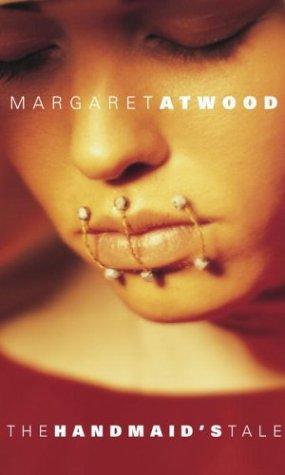
Margaret Atwood’s The Handmaid’s Tale
For most college students, summer is a time for the big things, a time for risk taking and pushing yourself: traveling internationally, finally landing that coveted financial internship, teaching abroad, graduating.
For me, summer meant coming home.
I haven’t spent a summer at home in more than three years, so returning after completing half of my time at Georgetown was disorienting and a little bit jarring. The person I’d grown into was confronted by the person I had been; my Facebook news feed was flooded with pictures of my friends graduating from Georgetown while I thumbed through my senior year high school yearbook; I could be texting friends from college while sitting in the same room I sat in as a child.
My first stop, besides finally drinking long-desired Seattle coffee, was the library. Unlike old acquaintances you run into at the grocery store, who still know you as the kid who wanted to run for Congress or become a vet or who was in love with “High School Musical,” the library grows with you. A book you loved when you were younger will be a book you can interact with in an entirely different way now. I heard somewhere that you can never read the same book twice, and I believe that because you’re constantly maturing and changing. It’s hard to come home and have to reconcile your childhood memories and haunts with your adulthood self, but books don’t pose that problem.
I picked up Margaret Atwood’s “The Handmaid’s Tale” from a library shelf on a whim. It sounded familiar and seemed like a good distraction while recovering from finals.
The story takes place in a not-so-distant dystopian future, although it also seems very reminiscent of early Byzantine culture, where the mysterious government in charge attempts to remedy all the problems they see with contemporary American society, specifically the treatment and objectification of women. What results is a highly stratified group of roles for women: Wife, Handmaid (a woman purely used for reproductive purposes), Martha (essentially a maid) or Unwoman. I won’t give too much away because Atwood draws out revealing information, but it’s easily one of the best books I’ve read in a while.
Much of the novel dwells on the reconstruction of the past. The narrator is unreliable and uninformed, so we are only offered a limited view of her world, and everything starts getting a little too real when Atwood’s message becomes much more fact than fiction. But it also deals with how quickly places can become unrecognizable — admittedly, this is far from the main point of the text, but it resonated with me.
Things change. Home changes. I can’t keep viewing Seattle as part of my past, because it’s changing just as much as I am, although hopefully a post-apocalyptic government won’t show up and strip women of their free will and only use them as reproductive vessels.
To balance the grim cultural critique of “The Handmaid’s Tale,” I also took on “West With the Night,” a memoir by Beryl Markham, after a recommendation from my Africa-obsessed aunt. Unexpectedly, it struck a chord.
Admittedly, I couldn’t really relate to any of Markham’s stories of Nigeria or being attacked by lions or flying airplanes across the Atlantic while running out of fuel, but I could get on board with her struggle over leaving home. Again, we were in different circumstances: she left home because of an African drought that destroyed her father’s farm while I left to go to college, but it made me feel less alone, knowing that someone else was trying to understand what it meant to come back to the place where you grew up.
Now that I have finally stopped binge-reading Haruki Murakami’s “1Q84” (a daunting, nearly 1,000-page novel but one you should definitely tackle this summer) and stopped binge-watching “Brooklyn Nine-Nine,” I’ve started to pay attention to home — and it’s different. There’s no more ice cream in the freezer as my mother refuses to buy processed sugar. My pets are older. There are new flowers in the garden and new baristas at my favorite coffee shop, but I’m different too.
But now that I’ve stopped expecting home to be the place I left, I can appreciate it more for what it’s given me: endless love and support, belief in myself and the ability to go out into the world and explore and grow and change and be able to revisit a place that may be different and where I will return as a different person, but will always be welcomed back.
Kim Bussing is a rising junior in the College. Top Shelf appears every other Wednesday at thehoya.com.














